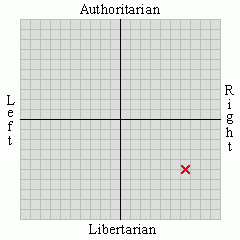In the 2014 UK elections for the European Parliament, UKIP topped the poll with 26.6% of the vote. It was recognised at the time that a substantial proportion of this represented a protest vote that was unlikely to stick with UKIP in the General Election. In particular, many Tory supporters and even members lent their votes to UKIP in an attempt to prod the Conservatives in a more Eurosceptic direction.
So, as the General Election approached, the level of UKIP support was inevitably going to decline. In the Autumn of 2014, the defections of Douglas Carswell and Mark Reckless, and their subsequent by-election victories, gave the party a notable boost, and it was often polling in the high teens or even in one or two cases the low twenties. Then, in the early part of 2015, it fell below 15%, no doubt affected by a wave of negative publicity stirred up by the media, with one or two polls showing it as low as 10%.
However, now that the rules on balanced TV and radio coverage during the General Election campaign have come into effect, it seems to have stabilised, and even turned upwards a little, with a couple of polls recording 19% and 17%. David Cameron’s appeal for UKIP voters to “come home” has fallen on deaf ears, with many ex-Tories feeling that the party has left them, not the other way round. It now looks likely that this level of support will be sustained until May 7th, which will mean UKIP winning around four million votes. But, given the disadvantage the first past the post system confers on challenger parties, especially those without a strong local pocket of support, what is that likely to mean in terms of seats?
Some UKIP supporters harbour dreams of a surge in support leading to dozens of seats, but realistically I would say that is highly improbable and, to avoid disappointment, they should take a much more cautious view of what they are genuinely likely to achieve. It makes sense for UKIP to target their efforts in a relatively small number of seats where they have a realistic chance of success. I would say that a reasonable “par score” would be:
- To outpoll the Liberal Democrats and become third party in terms of vote share
- To gain at least 10% of the popular vote
- To elect four MPs, including Nigel Farage in South Thanet
12% of the popular vote and six MPs would be a pretty good result, anything more a bonus. I hope UKIP can break through in more constituencies, but it shouldn’t be seen as a failure if they don’t. It’s also very likely that they will gain second places in many “safe” Labour seats in the industrial parts of England and Wales, which will show that they are the only credible opposition to Labour in those areas and will put them in a strong position if there is a weak Labour-led government and by-elections start to crop up.
However, another factor to bear in mind is how accurate the opinion polls are anyway. They were badly caught out in 1992 when the vast majority of pollsters failed to predict the narrow Conservative win, and since then have been applying ever more sophisticated weighting techniques in an attempt to correct for such errors. This, though, is the first time that accurately predicting the UKIP vote share has been important, and so they have no past experience to guide them. Apparently they are significantly weighting down the raw UKIP vote shares. Only the actual results will show whether they are correct to do so, but there must be a distinct possibility that the headline poll numbers significantly understate the UKIP vote.






